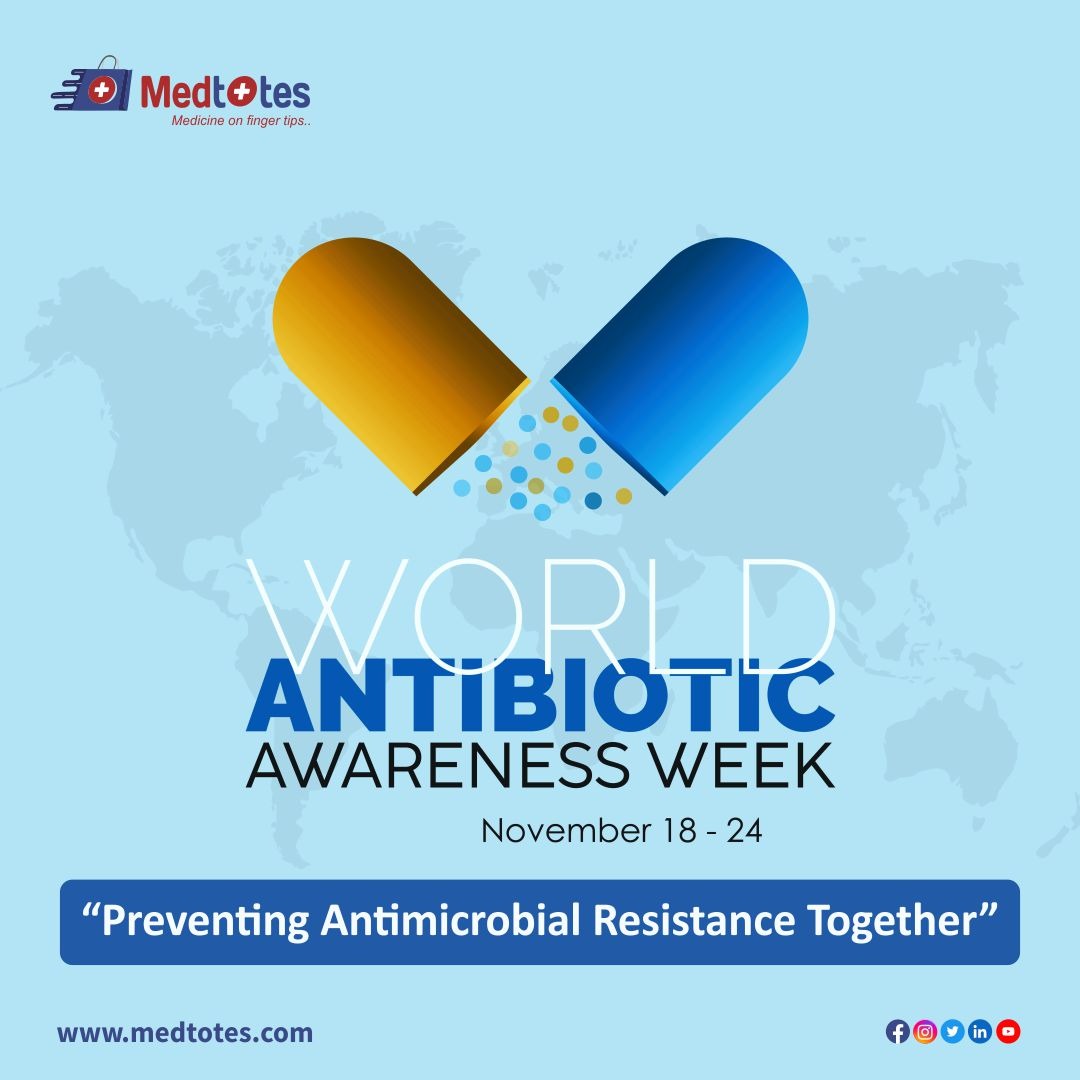I. INTRODUCTION
World Antibiotic Awareness Week, held from November 18th to 24th, is an annual event aimed at raising global awareness about antibiotic resistance, a critical issue affecting people of all ages and potentially causing devastating consequences if left unchecked. It emphasises responsible antibiotic use and the need for action to combat this global health crisis.
II. WORLD ANTIBIOTIC AWARENESS WEEK
World Antibiotic Awareness Week is an annual event in November that raises awareness about antibiotic resistance, educates the public on the proper use of antibiotics, emphasizes infection prevention, and encourages the development of new antibiotics. It brings together healthcare professionals, policymakers, and the public to discuss strategies and solutions to combat antibiotic resistance and maintain antibiotic effectiveness.
III. UNDERSTANDING ANTIBIOTIC RESISTANCE
Antibiotic resistance occurs when bacteria develop the ability to survive and multiply in the presence of antibiotics. This is mainly caused by the misuse and overuse of antibiotics, which leads to the emergence of drug-resistant strains of bacteria. As a result, common infections that were once easily treatable with antibiotics can now become life-threatening. It is crucial to understand the problem of antibiotic resistance in order to effectively address it and preserve the effectiveness of antibiotics for future generations.
IV. PRESCRIPTION AWARENESS AND OVERDOSE
- To ensure effective drug use, always follow the dose directions prescribed by your healthcare professional.
- It is critical to be informed of the medication’s potential negative effects and interactions.
- If you have any questions concerning your medication, don’t be afraid to approach your healthcare professional.
- Increasing the amount or frequency of medicine administration might result in an overdose, which can have major health effects.
- Never self-medicate or take another person’s medication without first contacting a healthcare professional.
V. CONCLUSION
In conclusion, Prioritizing health involves being responsible and informed about medication, being aware of potential side effects, seeking healthcare provider clarification, and avoiding self-medication or taking prescriptions without professional guidance to ensure safety and prevent serious health consequences.

